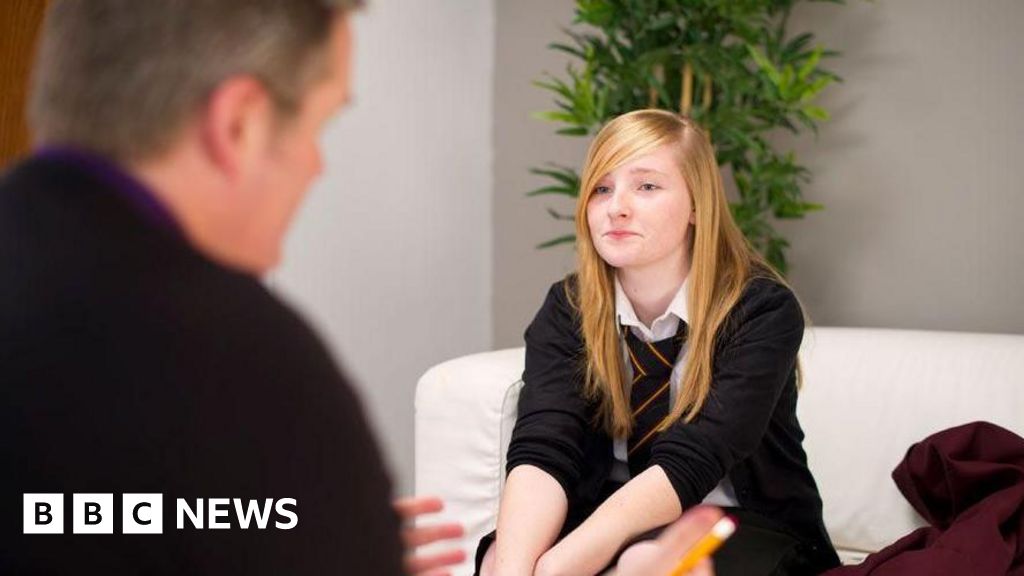ARTICLE AD BOX
Image source, Getty Images/Justin Paget
Image caption,Robin Swann told ministers he believed anyone working from home again last year when the pandemic began should do so again
People in Northern Ireland will be urged to work from home where possible in a bid to curb the spread of Covid-19, BBC News NI understands.
Stormont ministers met earlier to agree how best to manage the situation.
Health Minister Robin Swann presented a paper to ministers for consideration on Monday.
It is understood the Executive has now asked its Covid taskforce to examine issues around enforcement of wearing face masks.
The taskforce will also look at the potential of setting up a scores-on-the-doors type system to rate businesses on their compliance with rules and mitigations.
A statement is expected from Stormont ministers shortly setting out public messaging over the next few weeks.
In his paper to ministers, Mr Swann had said he believed anyone working from home again last year when the pandemic began should do so again.
Image source, Getty/andresr
Image caption,The health minister has warned hospitality businesses could be forced to close again over Christmas
But it is understood the executive recognises not all employers are able to facilitate this again.
Current advice already states that people should work from home where they can - but ministers wanted to strengthen the message ahead of the Christmas period.
Last week, NI's chief medical officer advised that working from home was a "significant way" to reduce transmission of the virus.
On Tuesday, First Minister Paul Givan tweeted that the executive had "engaged constructively and agreed a number of measures that will step up our collective efforts against the spread of Covid".
"Whilst there is differences across society on the most effective measures, we can all make a contribution that will help make a difference," he added.
Naomi Long said she did not have a crystal ball to predict the need for measures
Earlier, Justice Minister Naomi Long said Stormont ministers may have to re-introduce some Covid-19 restrictions if there are "no alternatives".
Mrs Long said the executive was "looking for ways that we can avoid having to take those drastic measures" by focusing on measures such as the vaccine booster programme and Covid certification "to make high-risk venues as safe as possible".
She added it was also being examined if there is "more we can do in terms of our messaging".
Mrs Long, the Alliance Party leader, said on Monday that ministers were "not planning for Christmas closures".
On Tuesday, she told BBC News NI's Good Morning Ulster that there was a "critical period" ahead and "we still have it within our gift" to avoid the need for restrictions.
However, Speaking on BBC Radio Ulster's The Nolan Show, Colin Neill, who represents the hospitality industry, said the "rhetoric" coming from Stormont was unhelpful.
"I appreciate that planning has to go on behind closed doors," he said, but added that politicians were making "half statements" with no promise of support if tighter restrictions are imposed.
"Those statements say to our workers: 'You might not have a job before Christmas' and it says to customers: 'Stay away'".
He said staff were being given conflict resolution training.
"We have seen abuse and the abuse levels are escalating. The vast majority of hospitality venues do not have doormen and we can't ask our staff to take abuse," he added.
The executive is meeting amid a high number of cases of Covid-19.
Northern Ireland's infection rate has been climbing over the past week or so - it is currently the highest in the UK, slightly above Wales, and has just overtaken the Republic of Ireland.
Following Monday's meeting, Deputy First Minister Michelle O'Neill tweeted that it was "constructive and progress was made" but it was agreed that "more work was needed".
Mr Swann warned there was a possibility that hospitality venues may be asked to close over Christmas if Covid-19 cases continue to increase.
But he said it was not inevitable.
Image source, PA Media
Image caption,Robin Swann expressed disappointment that some hospitality businesses had not acted responsibly since rules were relaxed
He also expressed disappointment that some hospitality venues had not acted responsibly after social distancing rules were relaxed.
Orla Smyth, who owns a cafe in Belfast, told BBC News NI that speculation about future measures was not "helpful for public confidence in using services".
She explained it also made it difficult for "business owners being able to function".
On Tuesday, Mrs Long said she did not have a "crystal ball" about how the coming weeks will unfold, but said she believed "people have become slightly complacent because of the vaccine".
When asked about the number of people who do not wear mandatory face coverings in retail settings, she said it was not the "primary responsibility" of the police to enforce this.
Rather, she added it was one of a number of agencies who have a role to play.

 3 years ago
77
3 years ago
77








 English (US) ·
English (US) ·